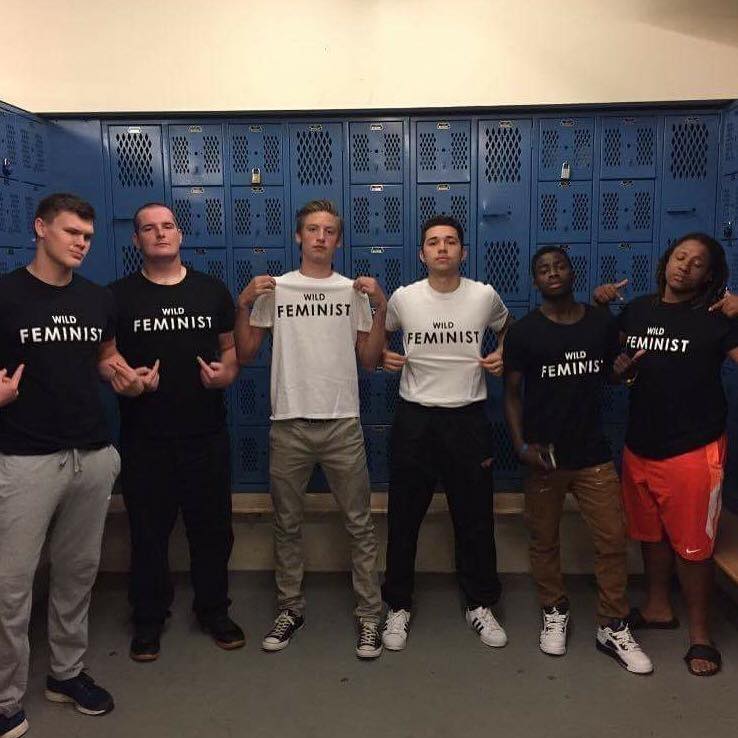Talking Sex(ism)
People are talking. This matters. We suspect our country and its people are better than this. But we’re not sure.
Question.
Does a Presidential candidate’s personal history of repeated demeaning public comments about women – with regard to appearance or sexual utility – have civic relevance?
Does a Presidential candidate’s history of physical sexual harassment of women have civic relevance? Does a Presidential candidate’s dismissal of either or both kinds of behavior have civic relevance?
And, does the sexually promiscuous history of a Presidential candidate’s husband or wife have civic relevance? Do private and mutually agreeable understandings for how to continue living in a marriage given this history have civic relevance?
Conversation is happening. But, at the same time, it seems to me we’re suffering an illogical conflation of public culpability for sexual violence with private agreements in love partnerships.
Here’s how it goes.
Presidential Candidate Trump is guilty of no worse sexual offenses toward women than Presidential Candidate Clinton. None of Candidate Trump’s language or behavior is qualitatively worse than Candidate Clinton’s remaining married to former President Clinton.
The range in individual citizens’ personal values and choices for our own love relationships is certainly substantial. That diversity actually works. Or it can. But it means we have to be confident in our choices (even as they may change), and it means we have to deal with these public questions. Are private understandings between committed intimate partners anyone else’s business (taking out the damatically nafarious and extreme possibilities that become the stuff of theater)? Extending that, are these understandings immediately material to civic issues like the challenges of governing? Finally, do sexual violence and private agreements for maintaining a marriage have the same quality and intensity of relevant public impact?
Sexual violence – verbal or physical dominance, intrusion, and objectification without invitation or consent – damages victims directly. Indirectly, the wellbeing of the public commons is also comprimised. From constant vigilance and stress to deep weariness with the invalidation and ignorace in sexist behavior – the quality of public community diminishes with every incident of self-righteous violence (verbal or physical) that arises from dominance systems like sexism, racism, ageism, ableism, classism, religious bigotry.
By comparison, while I might or might not choose solutions similar to the private agreements of committed intimate partners in the public eye – like Hillary and Bill Clinton’s – the chances are
- I can’t know in any detail what they are,
- I couldn’t presume to recreate their thinking toward these understandings,
- the Clintons’ relationship management is none of my business, and
- none of this has relevance to the qualification of Hillary Clinton as a candidate for the Presidency.
The next question: Is the recent and longer-term verbal and behavioral history of Donald Trump relevant to his candidacy?
All of this is in public play for our country. Whether others’ conclusions match my preferences or not, the dialouge pushes gender oppression into the public spotlight. It stimulates and refines public and individual ways of knowing
Like with the young men who stood together in a Gresham, Oregon highchool’s gym yesterday, wearing T-shirts reading: WILD FEMINIST. And like in the hundreds of poignant statements of solidarity and resolve emerging hourly from American women. For example, today my friend Carol Fish Kreager posted:
I didn’t report my sexual assault. It was a long time ago, and I was young, naïve and scared. If my assailant were running for public office and had just declared in a debate that he never did exactly what he had done to me, I like to think that I would have the courage to report it, even decades later.
I applaud these women, who did so, and who surely knew that they would be attacked again. BRAVA.
Then, last night there was the voice – shaking, resolute and brilliant – of our First Lady.
In this nation, we are talking. Next will come what we do as a result.
 Clare Consultation, LLC
Clare Consultation, LLC
That’s the question. When do we stop treating any of the above not as a soap opera drama or as a reality show but as a cultural issue? The same with racial prejudices. Let’s recognize that we are all affected. Maybe if we acknowledge uncertainties in ourselves, we can deal with them in the larger sense. But let’s stop excusing ourselves or others for whatever rationalizations we make.